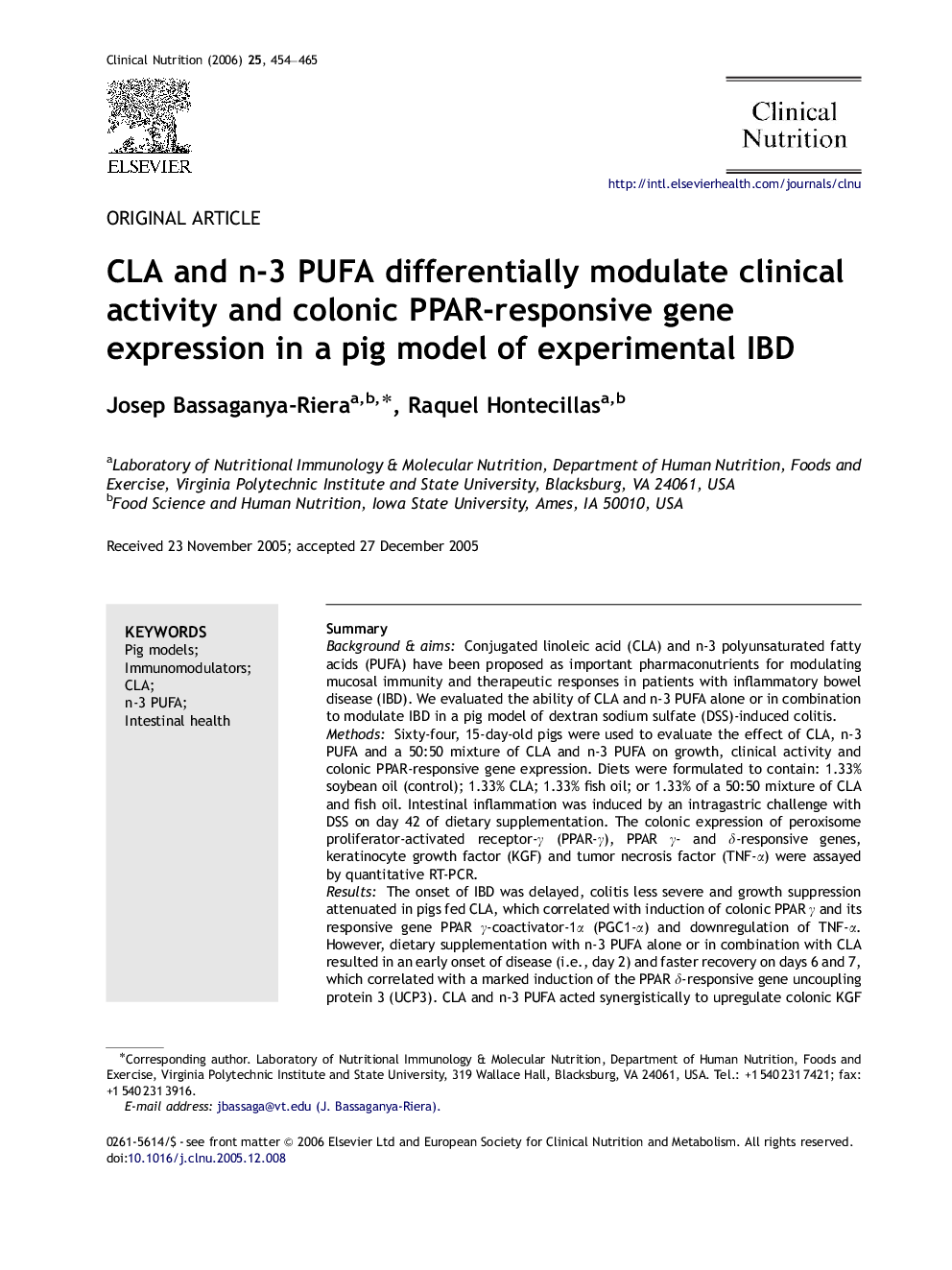| Article ID | Journal | Published Year | Pages | File Type |
|---|---|---|---|---|
| 2684547 | Clinical Nutrition | 2006 | 12 Pages |
SummaryBackground & aimsConjugated linoleic acid (CLA) and n-3 polyunsaturated fatty acids (PUFA) have been proposed as important pharmaconutrients for modulating mucosal immunity and therapeutic responses in patients with inflammatory bowel disease (IBD). We evaluated the ability of CLA and n-3 PUFA alone or in combination to modulate IBD in a pig model of dextran sodium sulfate (DSS)-induced colitis.MethodsSixty-four, 15-day-old pigs were used to evaluate the effect of CLA, n-3 PUFA and a 50:50 mixture of CLA and n-3 PUFA on growth, clinical activity and colonic PPAR-responsive gene expression. Diets were formulated to contain: 1.33% soybean oil (control); 1.33% CLA; 1.33% fish oil; or 1.33% of a 50:50 mixture of CLA and fish oil. Intestinal inflammation was induced by an intragastric challenge with DSS on day 42 of dietary supplementation. The colonic expression of peroxisome proliferator-activated receptor-γ (PPAR-γ), PPAR γ- and δ-responsive genes, keratinocyte growth factor (KGF) and tumor necrosis factor (TNF-α) were assayed by quantitative RT-PCR.ResultsThe onset of IBD was delayed, colitis less severe and growth suppression attenuated in pigs fed CLA, which correlated with induction of colonic PPAR γ and its responsive gene PPAR γ-coactivator-1α (PGC1-α) and downregulation of TNF-α. However, dietary supplementation with n-3 PUFA alone or in combination with CLA resulted in an early onset of disease (i.e., day 2) and faster recovery on days 6 and 7, which correlated with a marked induction of the PPAR δ-responsive gene uncoupling protein 3 (UCP3). CLA and n-3 PUFA acted synergistically to upregulate colonic KGF expression in DSS-challenged pigs but n-3 PUFA blocked CLA-induced PPAR γ activation.ConclusionDietary CLA-supplementation upregulated colonic PPAR γ expression and contributed to delaying the onset of experimental IBD, whereas n-3 PUFA failed to protect from IBD, although it accelerated colonic regeneration and clinical remission by activating PPAR δ.
